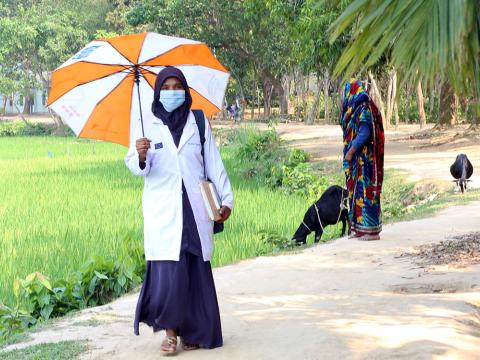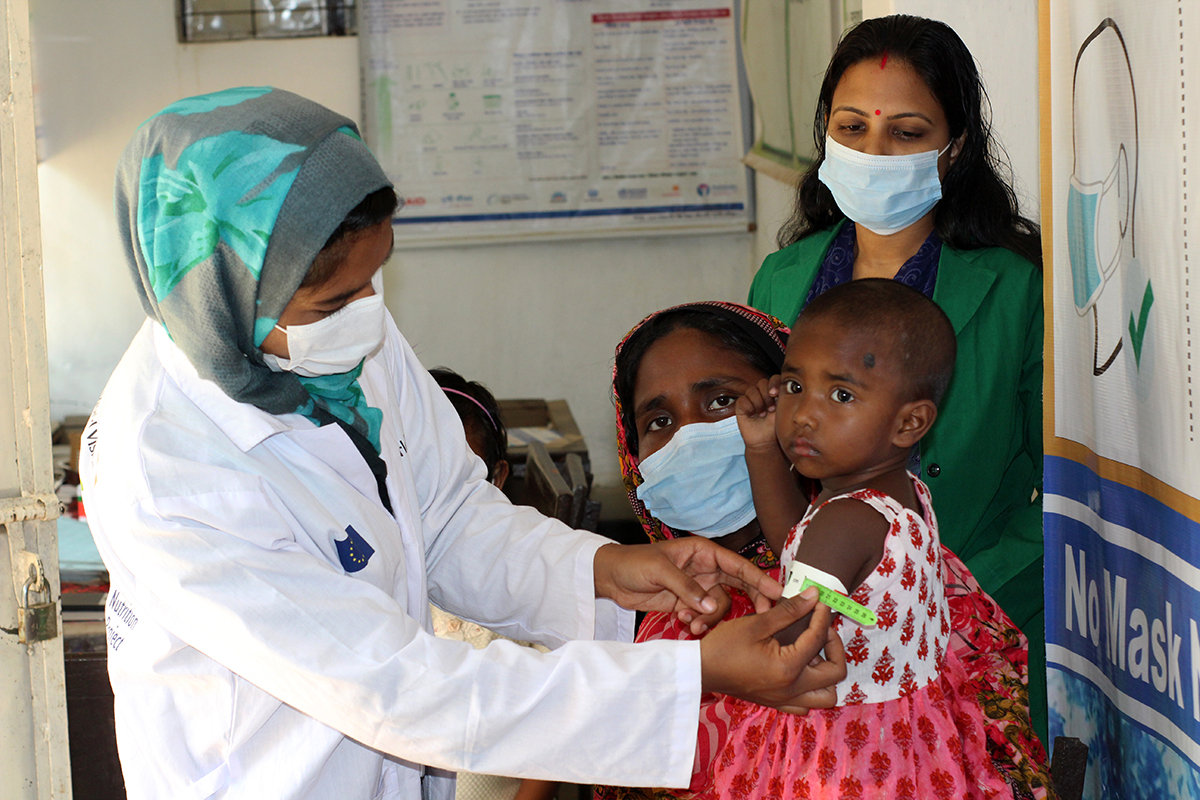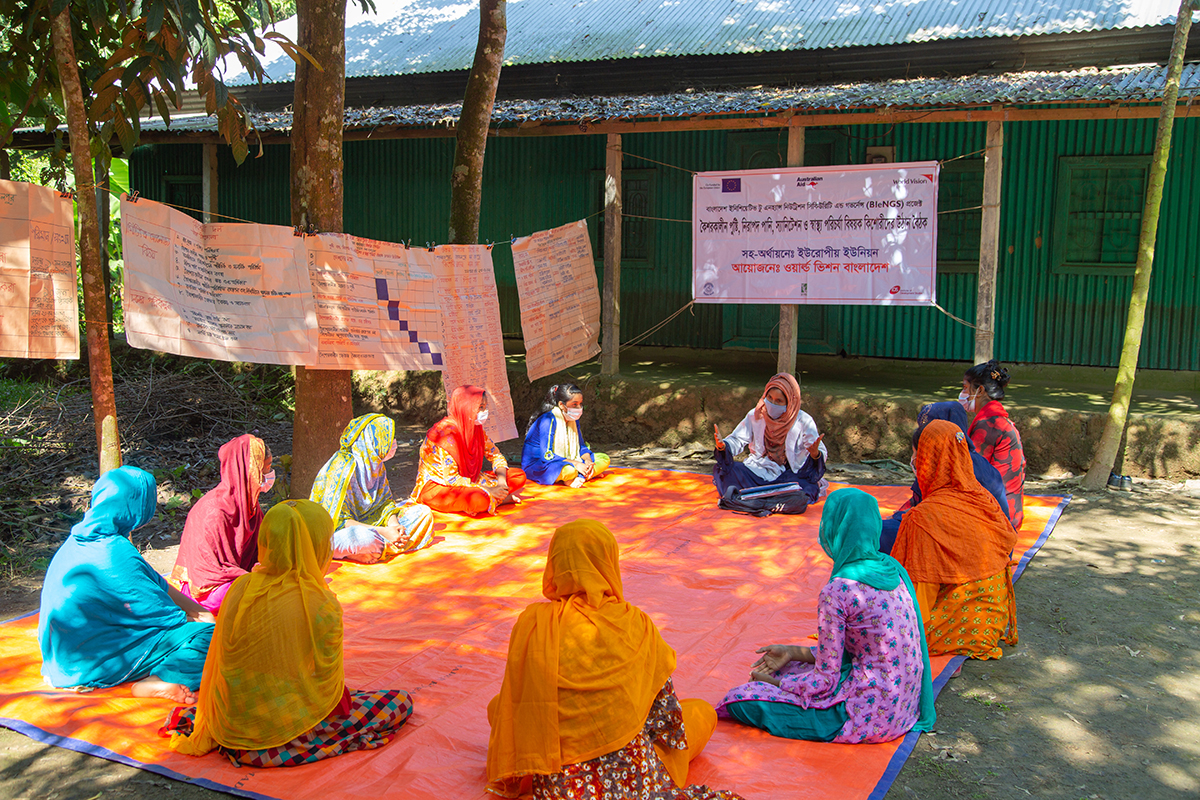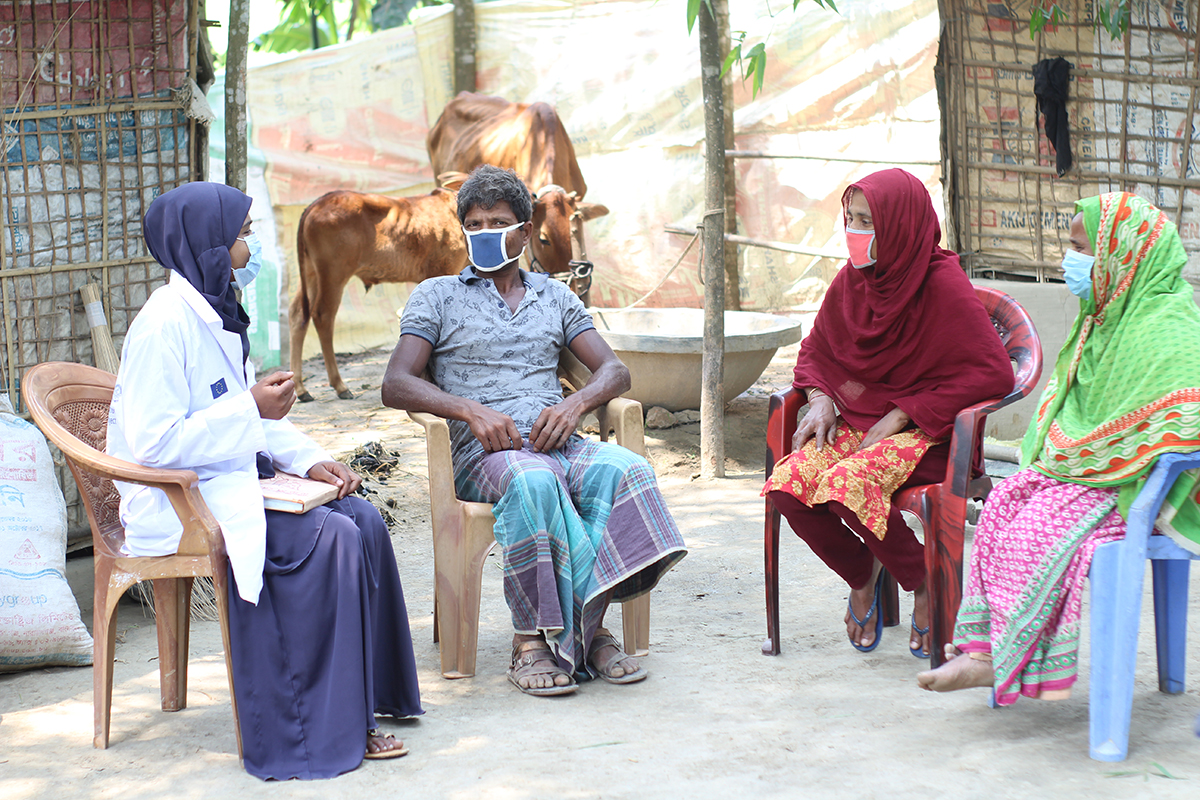Courage to Change- a passionate endeavour to keep the community safe and healthy

From the Frontline Development Staff
“I am helping my community to stay safe and healthy. Especially, I work for pregnant women, lactating mothers, caregivers and their children, and adolescent girls. I encourage them to eat diversified and nutritious foods as appropriate to their own context, take essential health services from the nearby Community Clinics and improve health and hygiene behavior that is conducive to pregnant and lactating mothers, children feeding and growth and development of adolescent girls.” Jannat, 25, a Community Nutrition Promoter utters how she supports people during this pandemic in the Jamalpur district of Bangladesh.
Working during the COVID-19 pandemic is very challenging to her, like all others, everywhere! Despite the fear of being contaminated, she feels, “if I’m not, then who else” will support the pregnant women, lactating mothers, children, and adolescents who are even more vulnerable to health risks during this pandemic? So, she can’t keep herself confined in her own house; she gets up, following all possible safety measures to protect herself from the deadly pandemic, and reaches out to heal others through counseling and advice, transferring knowledge and skills, and connecting them with health facilities as needed.
Jannat is one of the 224 Community Nutrition Promoters of Bangladesh Initiative to Enhance Nutrition Security and Governance (BEINGS) project co-funded by the European Union and DAFT (through World Vision Australia), implemented by a consortium of national and international development entities—Unnyan Sangha (US), International Food Policy Research Institute (IFPRI-HarvestPlus, USA), Institute of Development Studies (IDS, University of Sussex, UK), and World Vision (Bangladesh, Australia, and the United Kingdom). She joined this project in November 2019.
By the time, Jannat can see changes in her communities in the Jamalpur district of Bangladesh. Mothers and adolescent girls now visit community clinics to avail health services. “My community people are now more aware of their health,” Jannat says. “I want all mothers and girls to take all available services from the community clinic. It saves them from health complications.”

But, just a few years ago the scenario was different. Communities were reluctant to visit community clinics, many of them were not even aware of the Clinics, even if they knew about the clinics, they were not aware on the other hand, many of the clinics were not in a state of providing required services, including inadequate physical facilities.
The condition of the clinic did upset her. To improve the situation, they did meetings with Community Health Care Provider, community clinic management members (Community Group), and influential people from the community and respective Union Parishad Members.
“We worked hard to improve our community clinic. We identified issues of the clinic. Management decided to open it regularly and give best available services to the community.” Jannat says. Another part was her job, to make people visit and take health services in the clinic.

Setting priority, she went to the pregnant women, lactating mothers and adolescent girls. Shared the importance of health check-ups, taking iron and calcium tablets, and other necessary health services in the clinic which she learned from the training from the BIENGS project.
She also formed four Infant and Young Child Feeding groups for pregnant women and lactating mothers, four clubs for adolescent girls. In the groups, she shares improved cooking, feeding, eating, and hygiene practices among the participants.
She gives counseling to 3 – 5 pregnant and lactating mothers on maternal nutrition, feeding, and caring of under two years’ children. “I engage key decision-makers of families because behavior change of key decision-makers is the way to sustain nutrition practices in the family level. For instance, mothers-in-law are very important for creating an enabling nutrition environment in the family and community.” Jannat shares her field experience.

For her dedication to nutrition-related work, Jannat is known as “Pusti Apa” in the community. “People listen to me when I can show benefits. Before they had to buy extra food from the shops for their children. Now they can prepare and feed children at their homes. It saves their money and their children are healthier now.”
Moreover, joining the project as a community nutrition promoter, she is gaining practical knowledge on maternal and child health care. She thinks, “Mothers need nutritious foods and medical services for them and their children to be healthy. I can serve the community in the sector of nutrition, even after the project ends, with my skills to continue the walk of improvement which I started with a hope to end malnutrition in my community.”